Are you navigating the complexities of corporate governance and seeking expert guidance? Whether you're a seasoned executive or a newcomer to the corporate world, understanding the dynamics of effective governance is crucial for your organization's success. In this article, we'll explore essential principles and best practices to enhance transparency, accountability, and stakeholder engagement in your business. Join us as we delve deeper into practical strategies and insights that can transform your corporate governance approach!

Company structure and hierarchy
A well-structured company hierarchy, such as that of Fortune 500 companies, plays a crucial role in effective corporate governance. An appropriate organizational structure consists of several layers, including the board of directors, executives, middle management, and frontline employees. The board of directors, typically composed of individuals with diverse expertise, ensures oversight and strategic direction. Executives, such as the Chief Executive Officer (CEO) and Chief Financial Officer (CFO), are responsible for operational management and implementing the board's strategies. Middle management acts as a bridge, facilitating communication between executives and staff. A clear hierarchy promotes accountability, enhances decision-making, and fosters an ethical corporate culture, essential factors highlighted in studies conducted by the Institute of Corporate Governance.
Regulatory compliance and legal framework
Corporate governance frameworks establish the essentials for regulatory compliance, ensuring that organizations adhere to local laws and international standards. Legal frameworks, such as the Sarbanes-Oxley Act in the United States, are critical in maintaining transparency in financial reporting, particularly for publicly traded companies. Moreover, the guidelines set forth by the Financial Action Task Force (FATF) highlight the importance of anti-money laundering (AML) measures, particularly in the banking sector. Country-specific regulations, such as the General Data Protection Regulation (GDPR) in the European Union, mandate strict data privacy practices impacting how organizations handle client information. Effective governance practices also involve monitoring developments in securities regulation to maintain compliance with the evolving landscape of corporate law.
Board responsibilities and duties
Corporate governance frameworks outline essential board responsibilities and duties critical to effective management and accountability. The board must ensure adherence to regulations such as the Sarbanes-Oxley Act, emphasizing financial transparency for publicly traded companies. Oversight of strategic planning requires evaluating key performance indicators (KPIs) while balancing shareholder interests against corporate social responsibility. Regular assessments of risk management processes, including cybersecurity threats and compliance with data protection laws like GDPR, are essential. The board's duty also encompasses the establishment of ethical guidelines, fostering a culture of integrity and transparency within organizational operations. Furthermore, effective communication with stakeholders--including shareholders, employees, and regulatory bodies--reinforces trust and enhances company reputation.
Risk management and internal controls
Effective corporate governance in risk management and internal controls is vital for organizational integrity and sustainability. Implementing comprehensive frameworks, such as the COSO Framework, enhances the assessment and management of risks, including financial, operational, and compliance risks. Organizations such as the International Organization for Standardization (ISO) provide standards like ISO 31000, which guide the establishment of risk management processes. Businesses should adopt robust internal control systems, ensuring proper segregation of duties, regular audits, and compliance with regulations such as the Sarbanes-Oxley Act, fostering transparency and accountability. Additionally, regular training on risk awareness for employees can strengthen the overall governance structure, ultimately safeguarding the organization's assets and reputation.
Stakeholder communication and engagement
Effective stakeholder communication and engagement are vital components of corporate governance, especially in publicly traded companies such as those listed on the New York Stock Exchange (NYSE). Regularly publishing stakeholder reports (quarterly or annually) ensures transparency about financial performance, strategic objectives, and risk management practices. Utilizing digital platforms like social media can enhance real-time interaction with stakeholders, fostering a more inclusive dialogue. Annual General Meetings (AGMs) should be structured to allow shareholder questions, providing a platform for addressing concerns directly. Furthermore, compliance with regulations set forth by the Securities and Exchange Commission (SEC) regarding communication can build trust and enhance the company's reputation. Tailoring communication strategies to accommodate diverse stakeholders--including investors, employees, and community members--promotes a culture of engagement and accountability, ultimately supporting sustainable business growth.
Letter Template For Corporate Governance Advice Samples
Letter template of corporate governance best practices for board members
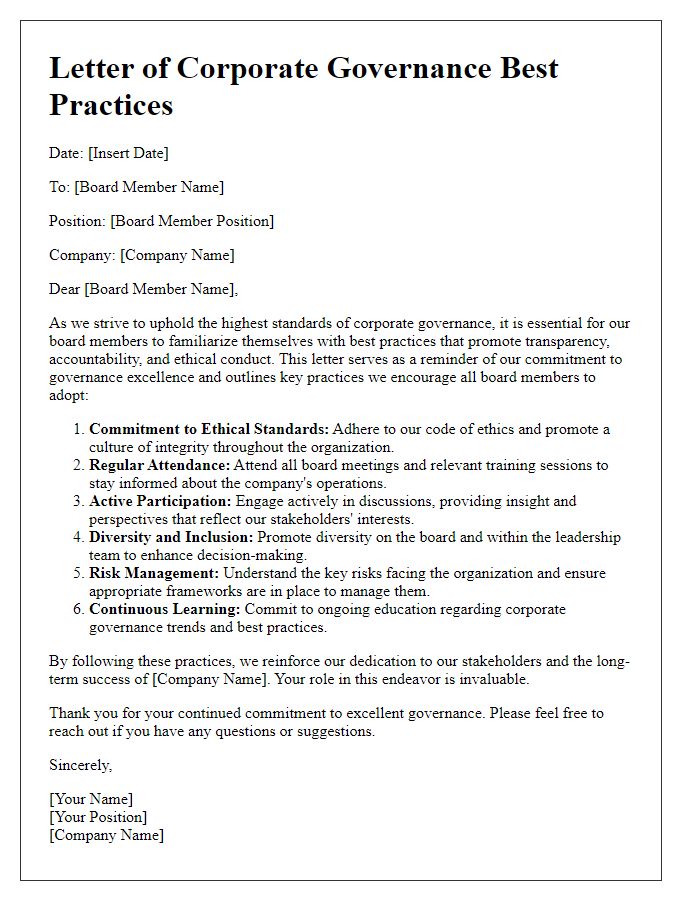
Letter template of corporate governance compliance guidance for legal teams
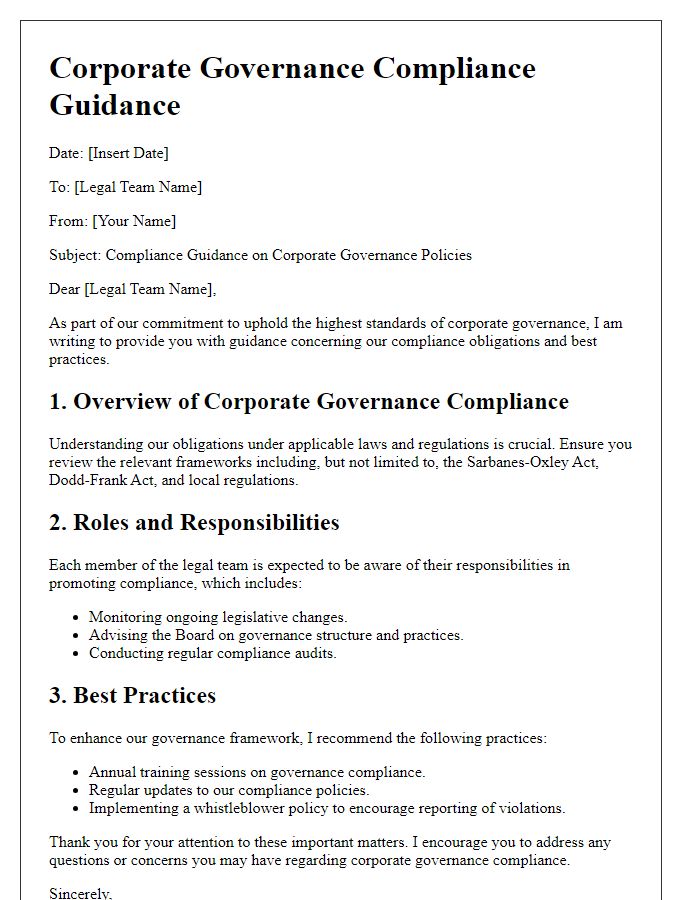
Letter template of corporate governance strategies for shareholder engagement
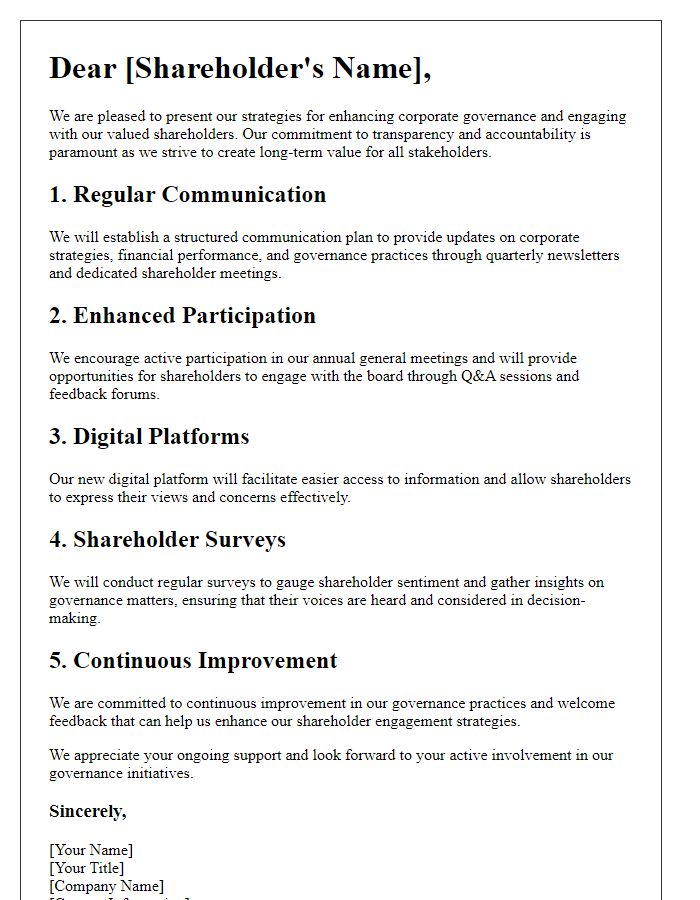
Letter template of corporate governance frameworks for non-profit organizations
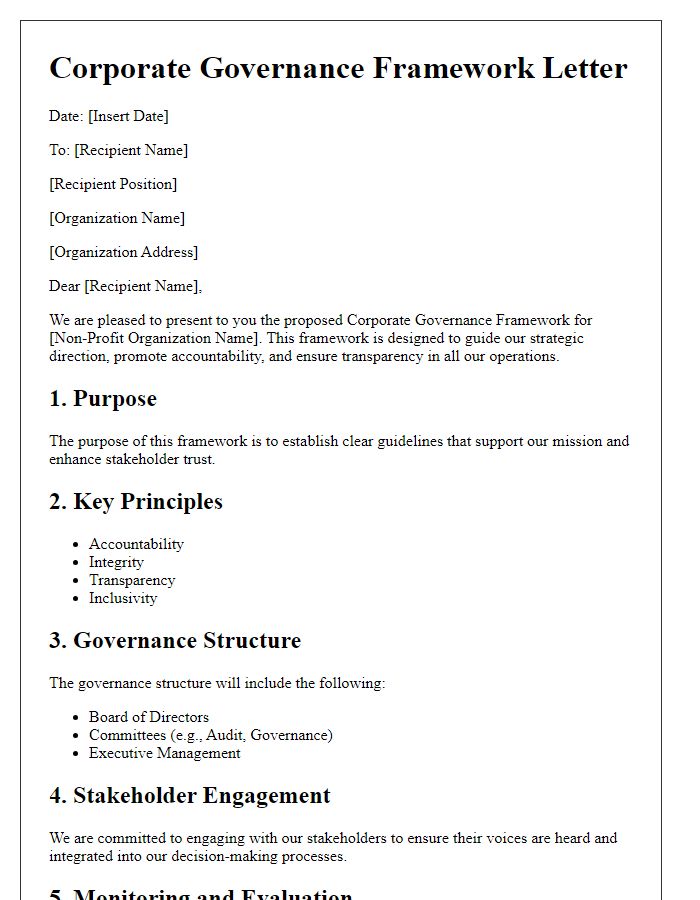
Letter template of corporate governance improvement suggestions for startups
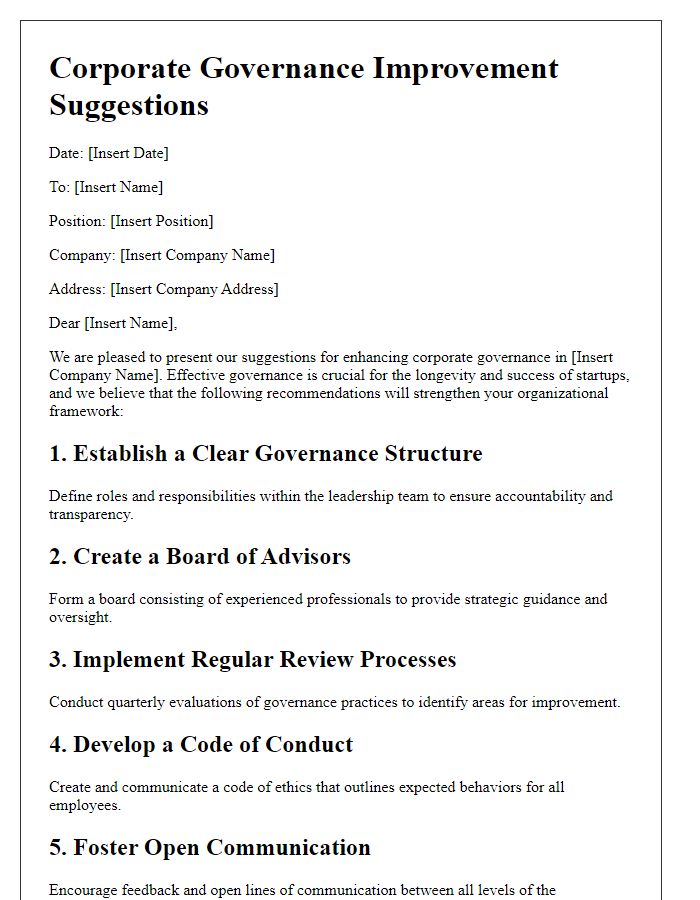
Letter template of corporate governance policies review for established companies
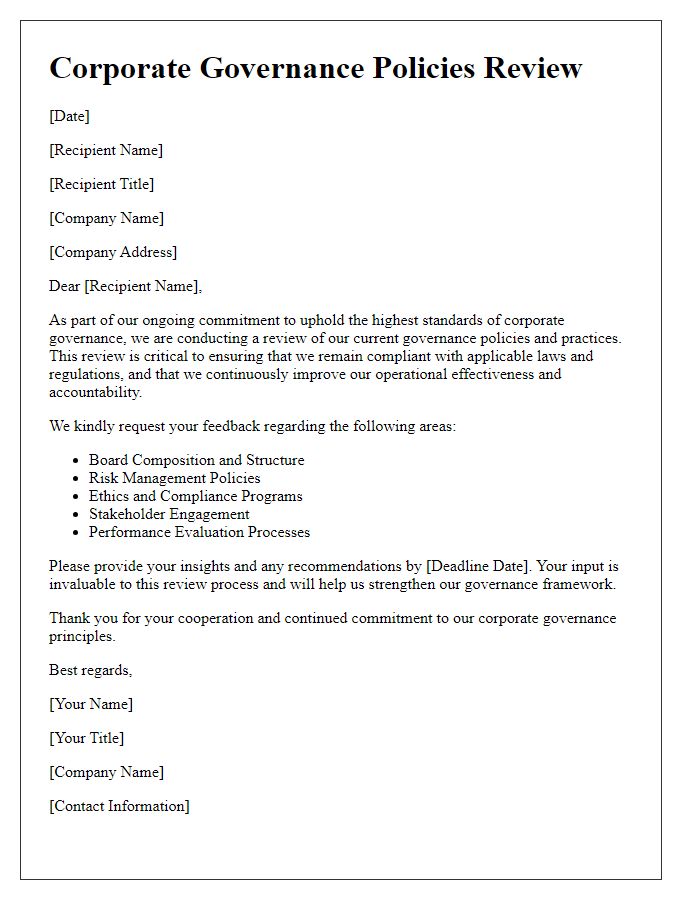

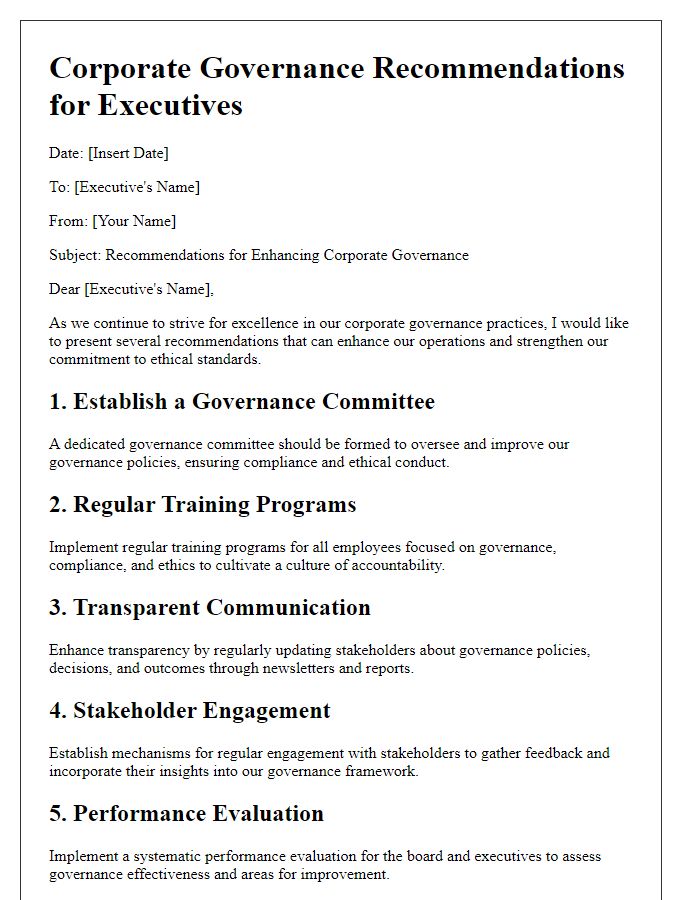
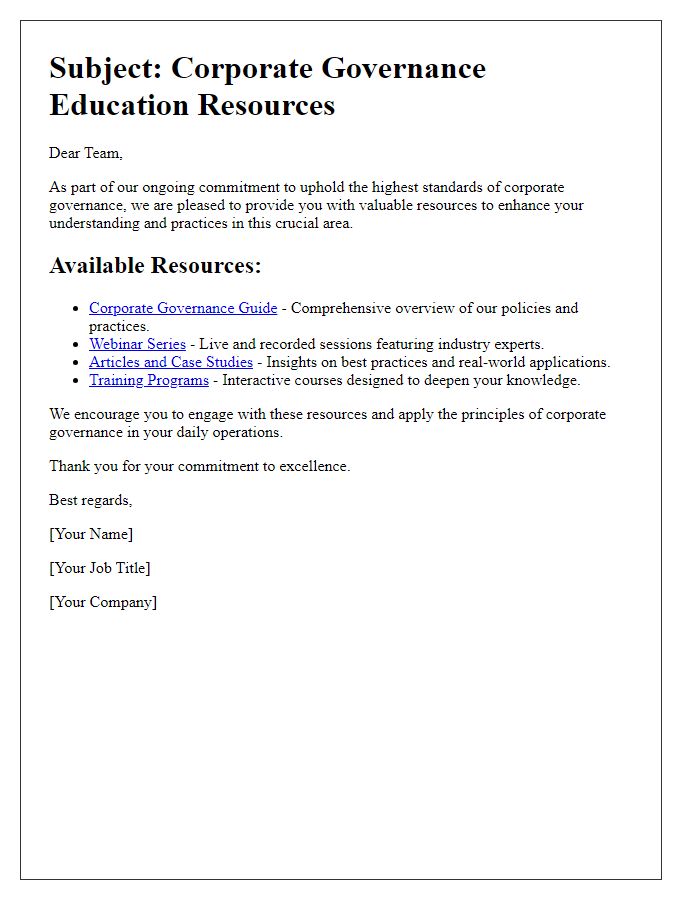
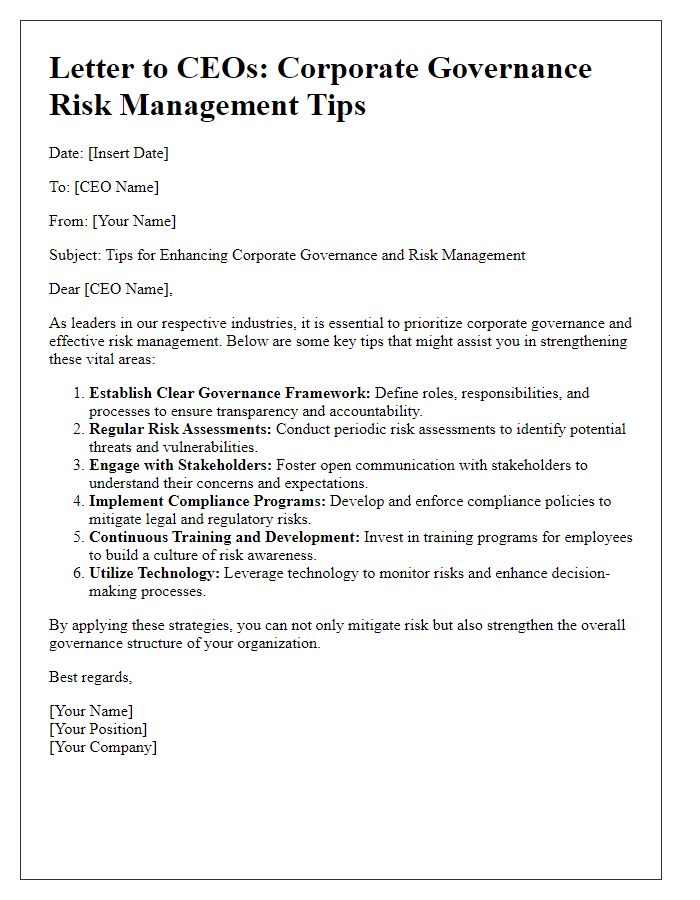
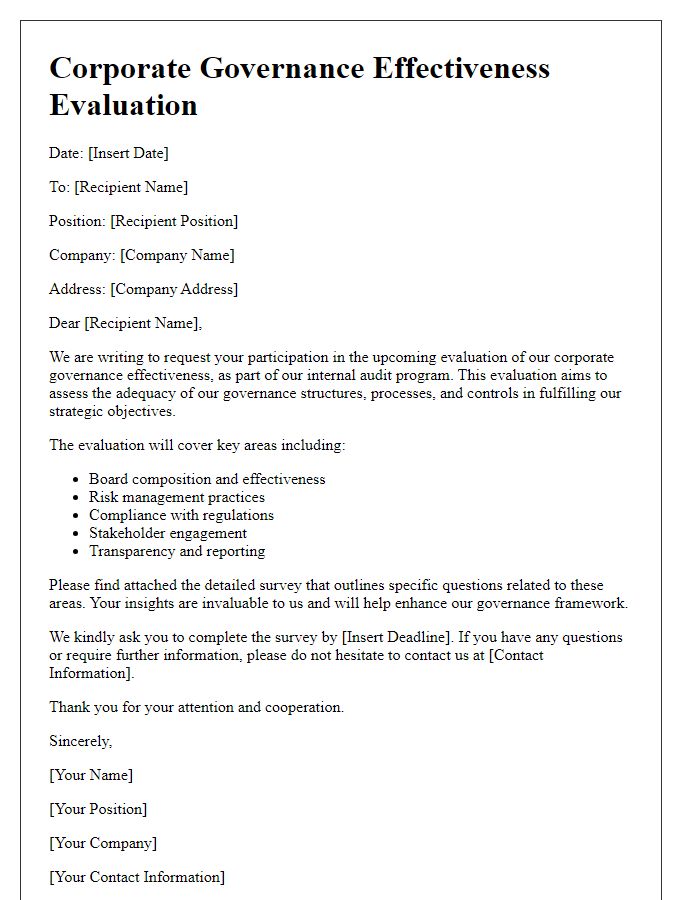


Comments